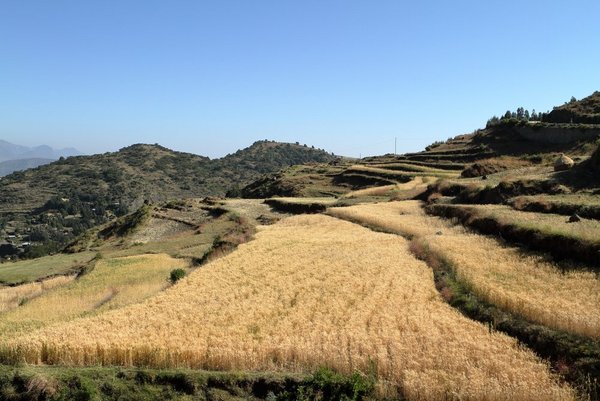 Read this article in French
Read this article in French- Share this article
- Subscribe to our newsletter
CGIAR report on actions to mitigate food crisis due to the Ukraine conflict
A recent CGIAR report highlights the increased risk to global food security given that 2.5 billion people rely on just a few regions for wheat, a key staple in many parts of the world.
In the short term, the report’s authors recommend the removal of biofuel subsidies, targeting social safety nets to the most vulnerable, addressing inefficiencies in current subsidies and boosting funding to humanitarian programmes.
Long-term responses include expanding wheat production in high-productivity areas (such as North America and Europe) and in regions with climate conditions suitable to growing wheat (such as Sudan and Nigeria), and raising agricultural productivity in low-production zones (especially Ethiopia and South Africa).
“Seven Actions to Limit the Impact of War in Ukraine on Global Food Security” is the result of comprehensive analyses by CGIAR researchers and notes that the crisis is compounded by a food system already reeling from the effects of climate change, a biodiversity crisis and the on-going pandemic.
According to Marco Ferroni, Chair of CGIAR System Management Board, this conflict further exposes the fragility of the global food system and puts the food and nutritional security of millions of people at risk. He urges that while the global community must step up to address the urgent humanitarian needs of those most directly affected now, the global food systems must also be better prepared for future food shocks.”
The CGIAR in a press release noted that with steep declines in exports from Ukraine and Russia ,wheat prices were spiking and shortages were further expected. There had also been a major reduction in chemical fertiliser exports and expected knock-on effects in other markets for staple crops.
Key recommendations by the CGIAR researchers
Additional recommendations from the CGIAR report include:
- Invest in real-time analyses: The monitoring of food and fertiliser input prices and analysis of country-specific food security risks could guide policy responses aimed at minimising the disruptions to food exports, expanding social protection and food assistance.
- Monitor effectiveness of interventions: A range of options are mooted including the internationally coordinated use of existing food reserves and reduced taxes on farming inputs including energy. However, trade-offs could be significant, requiring careful analysis and research to identify possible unintended consequences.
- Prevent policies that could worsen the situation: Governments should avoid short-term responses that hinder progress towards sustainable and resilient food systems. A key recommendation is to avoid sanctions that obstruct the food and fertiliser trade.
- Invest in climate-friendly agricultural research and evidence-based innovation to build long-term resilience to shocks.
- Identify and scale technologies: Examples given include satellite and remote-sensing imagery and data for farmers that can help to boost productivity.
- Provide evidence for optimal policies by showing the impact on food security, poverty, diets, and gender equality of previous interventions.
(CGIAR/wi)
Link to CGIAR publication: Seven Actions to Limit the Impact of War in Ukraine on Global Food Security





Add a comment
Be the First to Comment